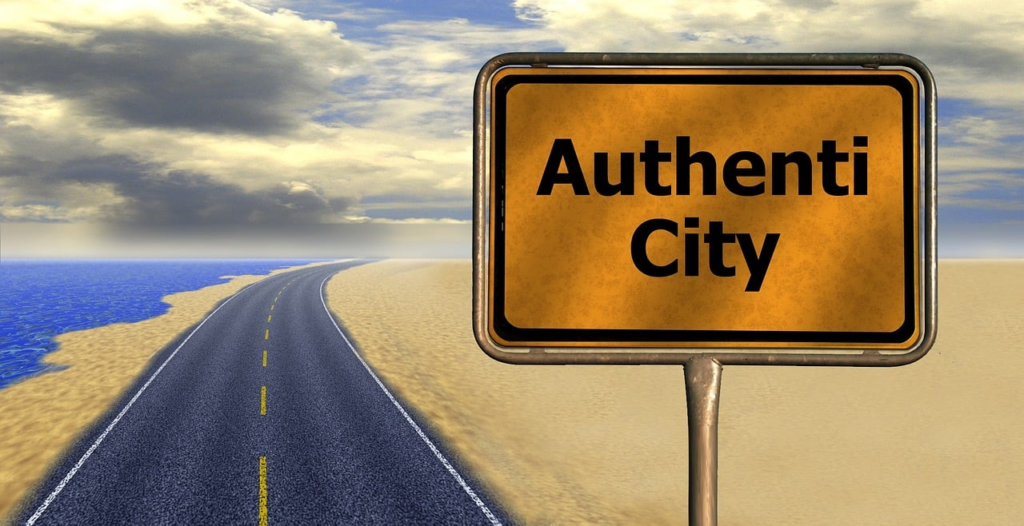There is a fine line between being a good person and not being authentic

First up, today’s post is a bit more general and not gender-specific. Therefore I use the gender-neutral ‘nice person’ in this post. But it is also a possible take on the gripes in the manosphere about how nice guys are not what many women prefer. I will address the issue in a broader perspective about relationships, though. Whether those relationships are platonic, professional, or romantic.
Also, I am not a therapist, even though I am as curious as one can be about matters of psychology and the human mind. This is likely a leftover from my time as a special-needs teacher. I naturally had to have an abundance of professional curiosity about these things. But there is a big difference between knowing, understanding, and acting. So most of what I share is the result of an arduous process of confronting myself and some inner demons. Mostly with the assistance of some very good therapists, and loved ones. I am eternally grateful for that.
Are You Really a Nice Person, Because You Want to Help and Be Good to Others?
I know, the headline insinuates that you may have a hidden agenda. And I understand that this must be offensive. It was to me when I first started to reflect upon it. By that time, I had already celebrated my 40th birthday. But better late than never, eh?
I am very concerned about the well-being of others. Injustice and hypocrisy are issues that occupy me a lot. And I do like to help whenever I can. Hence the multitude of articles about one injustice or the other in society. And my chosen professional path. This concern is also reflected in my private relationships. Most of the time, it is, anyway. But here is the catch. Most of our behaviors are not driven by conscious decisions. Rather, they come about because of internal and subconscious biases and belief systems. These are associated with certain feelings and emotions, that compel us to act in a specific way. The resulting behaviors are, in essence, a learned response.
In my case, years of bullying and heavy criticism in childhood have created a core belief inside me. The belief is that people only like me if I am nice to them and do all kinds of favors for them. So, I am not only a genuinely nice person. It follows that I do have a hidden agenda. Even if I wasn’t aware of that agenda myself, until recently. I want to belong and I want people to like me. The way I have learned to do that is by being overly nice. I set aside my own needs and wishes to serve people around me that I care about. In short, I am a people-pleaser.
Okay, so You Are a Nice Person Because You Want to Belong. What’s the Problem?
We humans are social creatures. The wish to belong and be part of a social circle is an innate desire. In that sense, there is nothing wrong with being nice to others. It is an admirable quality. And it sure helps to get along with people. I would much rather be a nice person, than a complete narcissist asshole. But instead of thinking of it as black-white matter, let us imagine for a moment, that there is a spectrum. On one end it says “I am a complete asshole, who never cares about others.” on the other end it says “I never think about myself and I am only concerned about the needs of others.”
Now think about what each end of the spectrum also entails.
The asshole side
- People know that you are an asshole.
- Nobody doubts that your intentions are selfish.
- You are always striving to meet your own needs first. This makes it more likely that you fulfill those needs, even at the expense of others.
The people-pleaser side
- You are very likable.
- People never really know what you think or feel at any given moment.
- You do not prioritize or communicate your own needs. It is unlikely that these meets can be met. Not even by those around you.
You see, it is not just positive or negative. If you strive too far to the nice person’s side, you become inauthentic. And the people that you interact with can sense that. What is the consequence of not being authentic? People start losing trust in you. They never know, where you stand. The asshole, on the other hand, leaves no doubt. You always know that person is an asshole.
If Being a Nice Person Is a Spectrum, There Is Also a Middle Ground
This is where it gets interesting. Where is that middle ground? I don’t know. Each person needs to find it for themselves. The middle ground is that fine line of being a good person who does not sacrifice their authenticity. That takes a lot of introspection and reflection. And this is also why many women don’t date nice guys. Because they are inauthentic. Maybe they are nice. But their potential romances cannot tell whether they are being nice to get into their pants. Or if these guys genuinely like them. This is also an issue in all kinds of other relationships. If you are inauthentic, your relationships are doomed to stay superficial, at best.
I learned this the hard way. Now at 41, I am working on unlearning some of these beliefs. I try to find my middle ground. That line between the asshole and the people-pleaser. It is a tough lesson that has cost friendships and romantic relationships. But it is never too late to learn.




